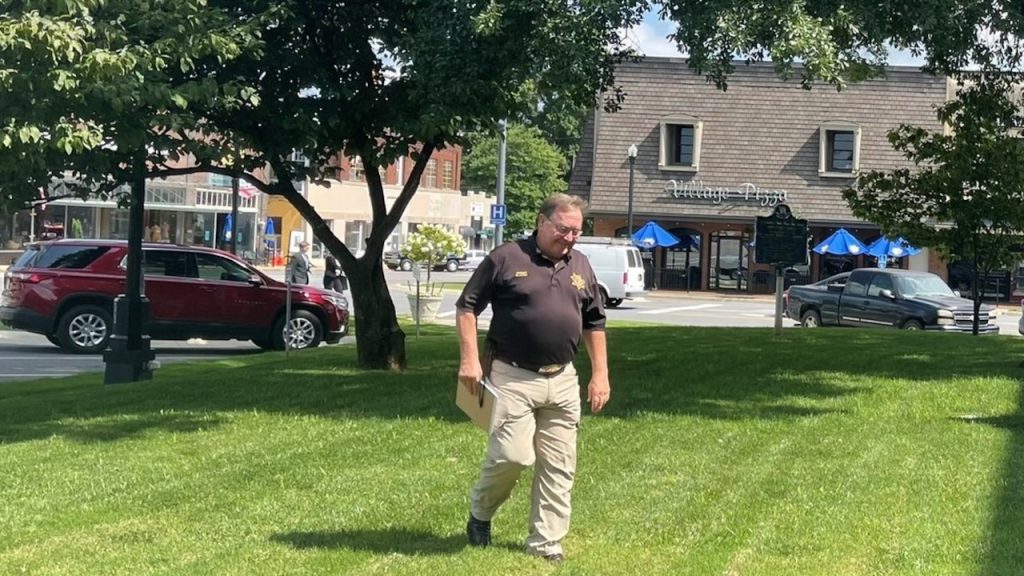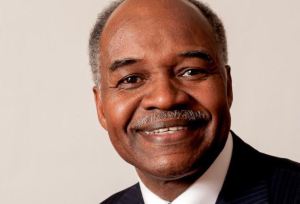
This is an opinion column.
I grew up believing Thomas Jefferson, silly me. He argued that when a person assumes a position of public trust, “he should consider himself as public property.”
It’s bigger than him. Or her.
You have to believe it, or democracy falls apart. Trust in government goes to hell, voters yawn, power is bought and sold, and we the people – you the people – don’t get your due.
So when a longtime sheriff like Mike Blakely goes to jail, sent by a jury of his peers and constituents, we have to respect the verdict and the sentence, like it or not. We have to at least pretend to honor the system.
If we value it at all.
In 2021 Blakely, a Democrat from Limestone County, was sentenced to three years on breaches of the public trust. He took out more than $29,000 from a safe that held cash from people he held in his county jail, and called it an interest free loan. He stole $4,000 from his campaign account. He broke laws that put other people behind bars. Maybe even behind his bars, where they put money in his safe.
Those are real crimes. By a man entrusted with upholding the law.
A month ago the Alabama Board of Pardons and Paroles – the most punitive agency of its kind in America, a board that last year paroled fewer than one out of every 10 eligible parolees despite shamefully overcrowded prisons – simply let Blakely go.
He had served a little more than one year of his three-year sentence.
Perhaps influenced by a crowd of Blakely supporters, the parole board voted 2-1 to let him out. Parole board members Darryl Littleton and Gabrelle Simmons, who voted for his release, have been more reasonable about paroles than their predecessors, which I generally appreciate. Board chair Leigh Gwathney – who just says no more than Nancy Reagan ever did – wanted him to finish his sentence inside. She is consistent if nothing else.
I’d like to hope – best case scenario – the decision is a sign of an evolution of the parole board. If there is hope it is in an understanding that some inmates are redeemable, that people are not the sum of their worst moments. I’d like to hope it is progress, that the board will find reason for more second chances.
But for the moment all I see is the contrast.
I see Tony Derrell Fults, a guy who served two years on a third-degree burglary charge who was denied parole in April. No one showed up to speak for or against him, according to the minutes. Or James Edward Hallford, who served 17 of 20 years for crimes of receiving stolen property and was left behind bars last month. His wife spoke for his release, but it did no good. Jonathan Lee Howell was denied release after serving two years on a pair of third-degree burglaries. It is unclear from the minutes if anyone spoke for him, but it doesn’t appear so.
Are they worse than a corrupt cop? It is hard to process.
Because a parole board that appears to pick and choose on the basis of popularity or politics seems as broken as one that refuses to let anybody out.
And appearance is important. Especially when it comes to public officials. A parole board that treats corruption as a forgivable offense but considers other property crimes to be lifetime mistakes – along with growing weed in your backyard, missing a meeting with a parole officer or protecting yourself from an abuser – is not just cruel, but corrupt.
The powerful must pay the price they earned, through their own corrupt and criminal actions, or pretty soon the justice system becomes a popularity contest or a partisan sham.
It’s not just the parole board.
Alabama Attorney General Steve Marshall – Mr. Flaw & Order – recently thumbed his nose at the jury that in 2019 convicted a former white Montgomery cop to 14 years in prison for his killing a black man, and the judge who sentenced Aaron Cody Smith to 14 years in prison.
Marshall just took over the case and let the guy go with a plea deal. Because he wanted to. Which seems a lot like a whole different kind of corruption.
We’ve seen enough favoritism and partisanship and looking the other way as these guys talk of law and order and punch down at those who cannot defend themselves.
It’s why Alabama’s attempt to redraw – and gut – the ethics law in the recent session raised eyebrows, why national team sport politics is off the rails. It is why Alabama has been, pound-for-pound, as corrupt as any banana republic in recent decades.
We’ve seen three governors convicted of crimes. We’ve seen a speaker of the house imprisoned (and released early) for using his office for personal gain. We’ve seen a chief justice of the Alabama Supreme Court twice removed from office.
We’ve seen judges abuse authority and legislators sell their souls. Six former Jefferson County commissioners were punished along with dozens of contractors, some of them as part of a scam that led to what was then the largest municipal bankruptcy in the world – and one that continues to cost the people of the whole metro area.
Politicians have soaked inmates, sewer customers and taxpayers in the name of everything from computer help for kids to healthcare for the homeless and a heritage of hope.
Like we are a bunch of saps. All while politicians sing and dance about being tough on criminals.
Corruption is not a petty crime. These are serious offenses that affect us all, that cost us money, that rob us of confidence that our government can and will act responsibly, on our behalf, for all.
Lord knows we need that confidence, if the republic is to survive.
These crimes should be treated at least as seriously as many of those that keep Alabama prisoners locked up for life.
I don’t care that Mike Blakely was a likable guy, who brought a big crowd, who may have done good things at other points in his life. The standards for release must be the same for all. Or the system is failed.
Or as Jefferson also said, we will look to a not-so-distant future when a corruption “will have seized the heads of government, and be spread by them through the body of the people, when they will purchase the voices of the people, and make them pay the price.”
Maybe we are already there.











